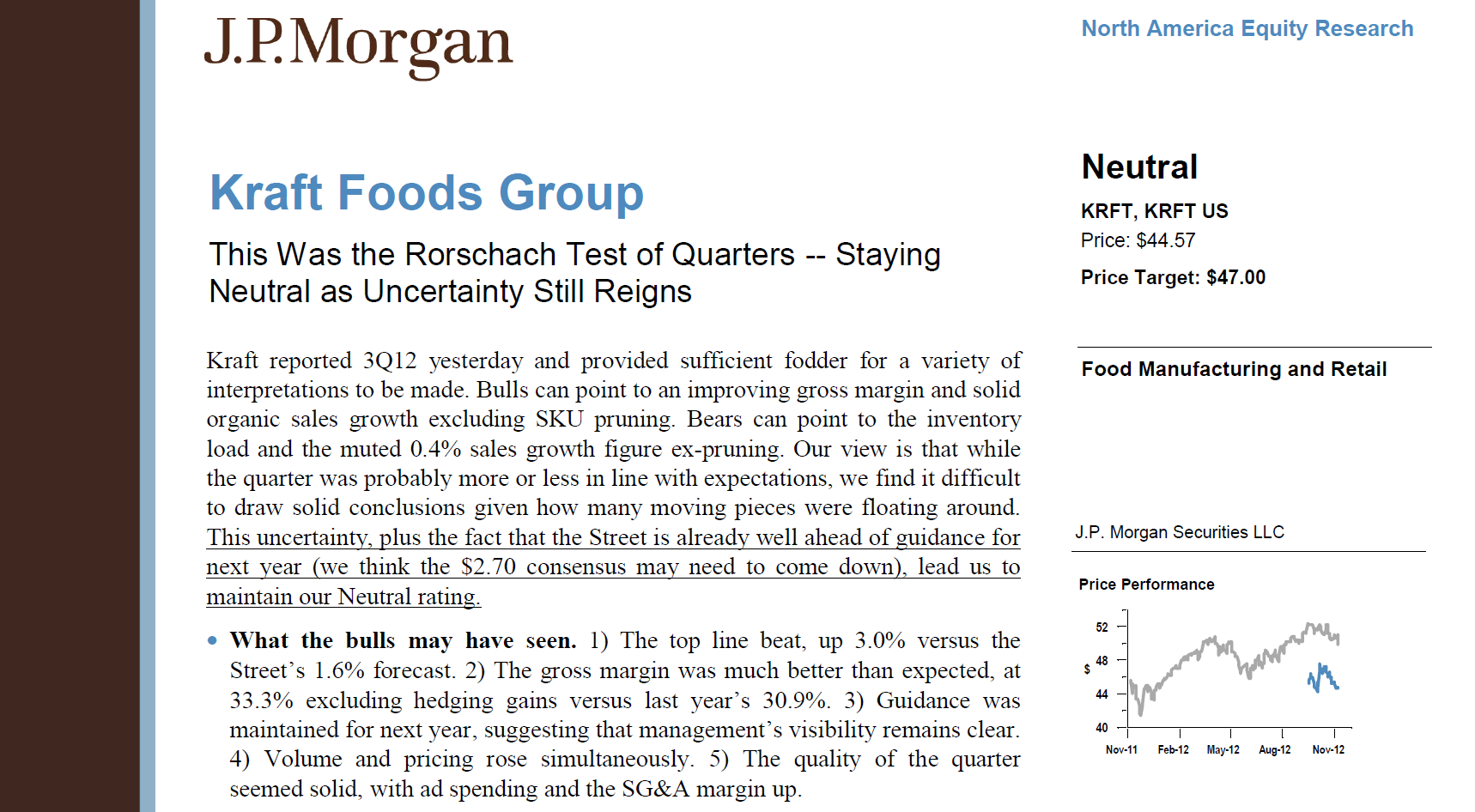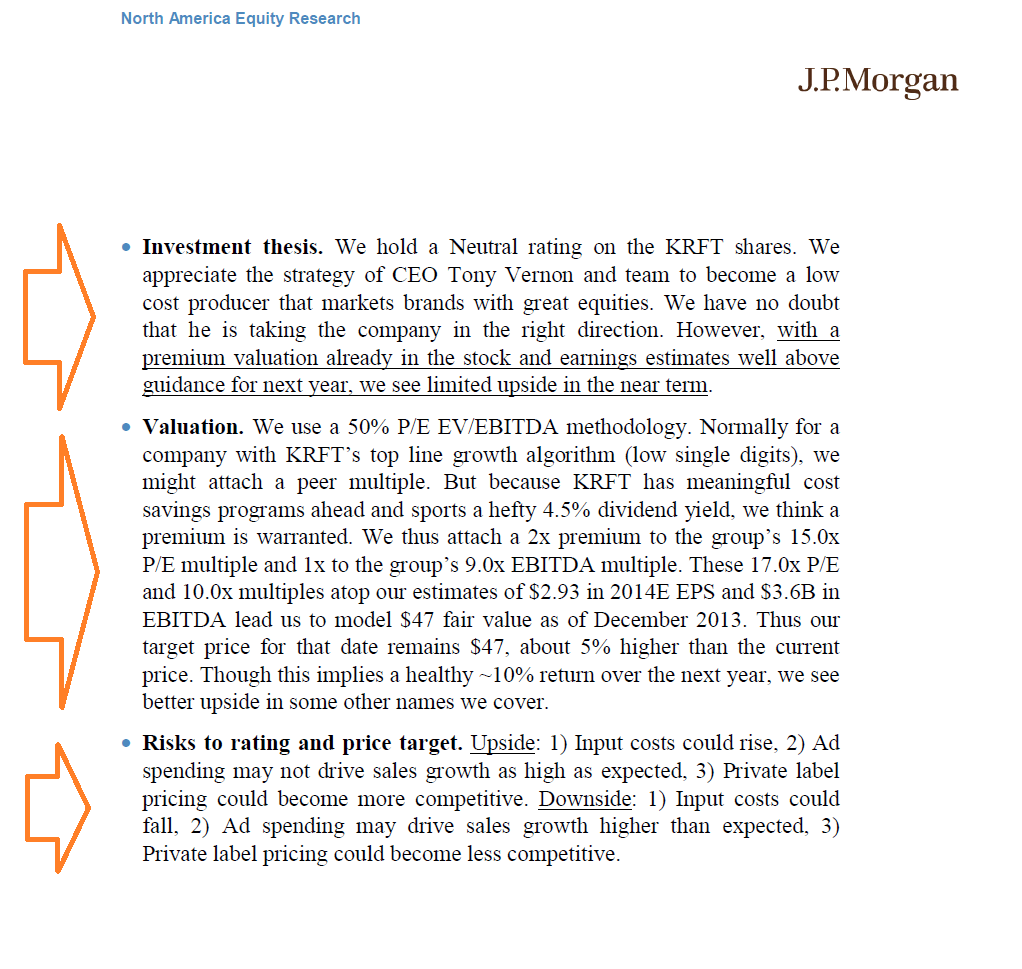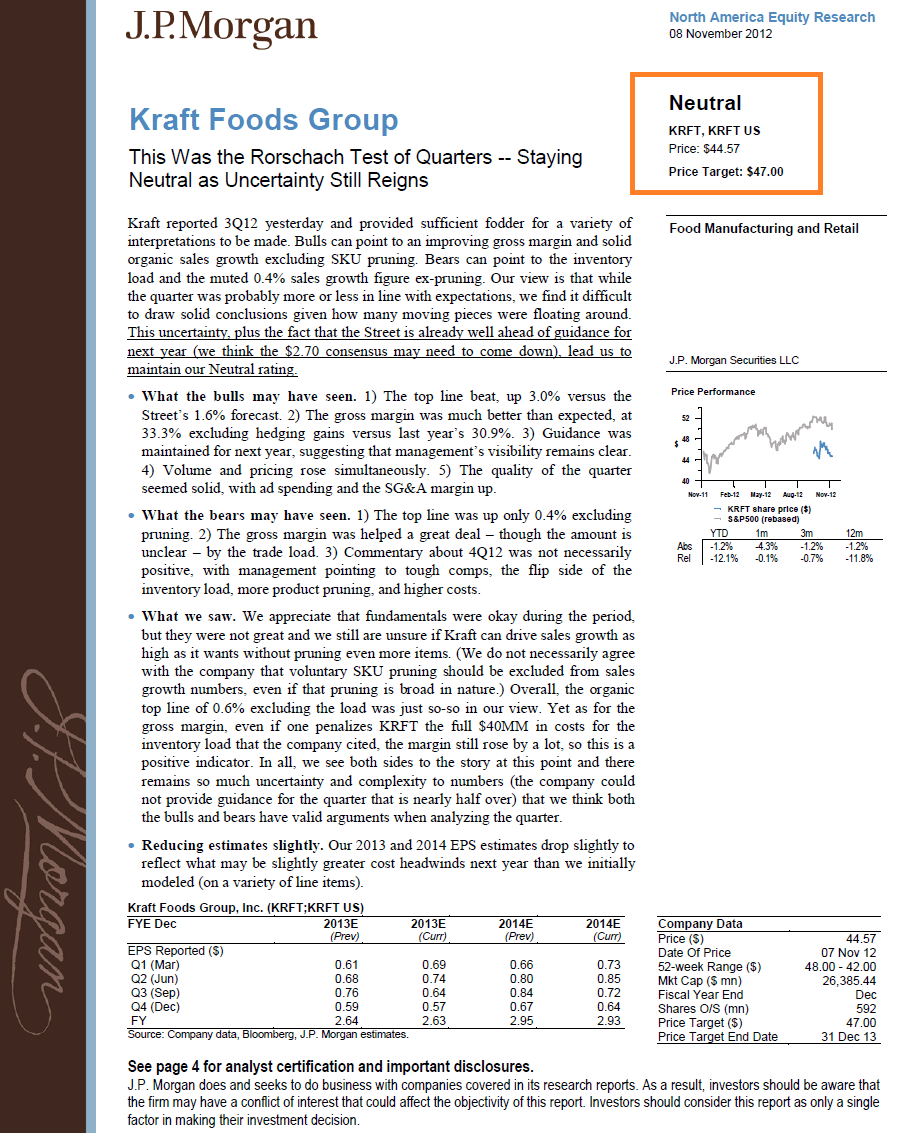
Over 2 million + professionals use CFI to learn accounting, financial analysis, modeling and more. Unlock the essentials of corporate finance with our free resources and get an exclusive sneak peek at the first chapter of each course. Start Free
An equity research report is a document prepared by an Analyst that provides a recommendation on whether investors should buy, hold, or sell shares of a public company. Additionally, it provides an overview of the business, the industry it operates in, the management team, its financial performance, risks, and the target price.

Let’s take a closer look at what’s included in an equity research report. Below is a list of the main sections you’ll find in one of these reports.

It’s important to distinguish between buy side and sell side research reports.
Buy side firms (asset management companies) have their own internal research teams that produce reports and recommendations on which stocks the firm and its portfolio managers should buy and sell. The reports are only used for internal investment decision making and not distributed publicly.
Sell side firms such as investment banks produce equity research reports to be disseminated to their sales and trading clients and wealth management clients. These reports are distributed for free for a variety of reasons (explained below) and have a specific recommendation to buy, sell, or hold as well as an expected target price.
Learn more about buy side vs sell side jobs.
The sell side publishes reports to generate fees, both directly and indirectly.
Direct: Trading Commissions
When an investment bank publishes valuable equity research for an institutional client, that client is then likely to use the bank to execute their trades for that stock. While there no actual agreement to do so, it’s an unspoken rule. The bank may also use the report to persuade the client to buy more shares in a holding they already have, to therefor further increase commissions.
Indirect: Investment Banking Relationships
All banks have a Chinese Wall between their investment banking teams and research departments, but there still remains an indirect incentive for research to be supportive of stocks the bank may provide investment banking services to. The fees that investment bankers earn on underwriting and mergers and acquisitions (M&A) are huge, and a bank would never want to miss out an opportunity to work with a CEO of a public company because the bank had a “Sell” rating on their stock.
For this reason, sell side research typically includes a disclaimer along the lines of, “Bank X seeks and does business with companies that are covered in its research reports. Because of this, investors should be aware that the firm may have a conflict of interest (due to these investment banking relationships) that could affect the objectivity of this report. Investors should consider this report as only a single factor in making their investment decision.”
Each bank has their own set of recommendations (terms) they use to rate a stock. Below is a list of the most common recommendations or rating analysts issue.
This guide has focused on a “typical” equity research report, but there are various other types that can take slightly different forms. Below is a list of other types.
Types of reports:
Below is an example of an equity research report on Kraft Foods. As you can see in the images below, the analyst clearly lays out the recommendation, target price, recent updates, investment thesis, valuation, and risks.

Thank you for reading CFI’s guide on Equity Research Report. To learn more, these additional resources will be helpful:
From equities, fixed income to derivatives, the CMSA certification bridges the gap from where you are now to where you want to be — a world-class capital markets analyst.